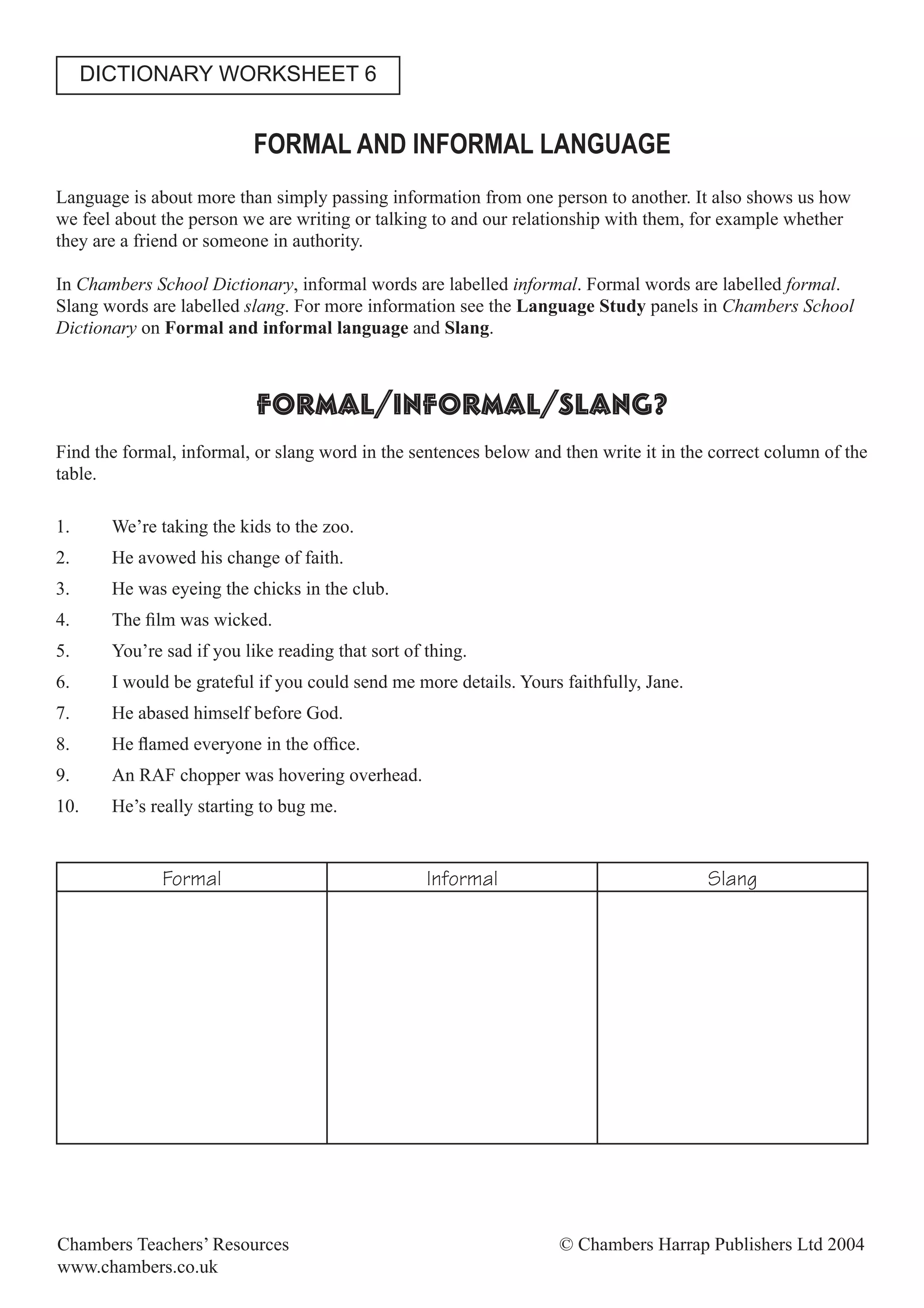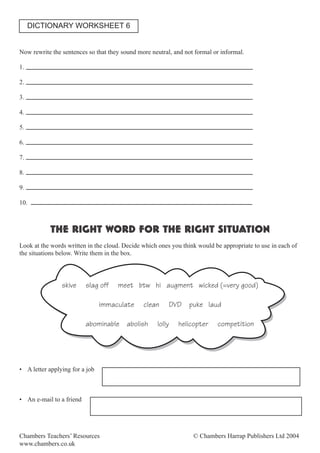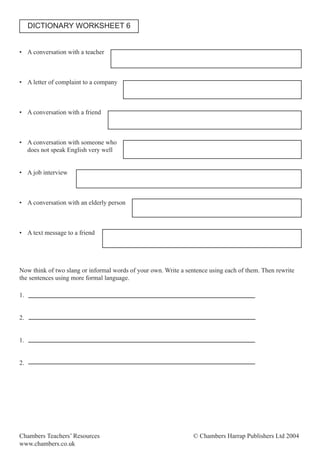This document discusses formal and informal language. It provides examples of words labeled as formal, informal, or slang in a dictionary. It then presents sentences using these types of words and asks the reader to identify which is which. Several exercises follow that ask the reader to rewrite sentences in a more neutral tone and choose appropriate words for different situations from a word cloud. In the final part, the reader is asked to provide their own slang words and rewrite sentences using them in a more formal way.


